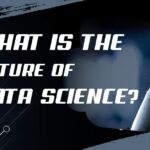
PG Diploma
Post Graduate in data science course provides training to develop Statistical, Computational and Programming Skills. The increasing importance of data analysis in several fields including banking, finance, entertainment, pharmaceutical, environment, economics, engineering and many more motivated us to curate a course for full time working professionals and new graduates to upskill and become eligible for lucrative job prospects.
The program aims at teaching students:
- Theoretical and practical aspects of statistical concepts like inference, probability, Bayes Theorem, modeling
- Programming skills like Python and R programming
- Data visualization tools for real-world scenarios
- Database management to clean, transform and query data.
- Implementing machine learning algorithms to design solutions for data-oriented problems
Key highlights

Gateway to foreign universities
Complete 16 years of education as required by most of the international institutions while getting an excellent foundation in the data science field.

University of Mumbai
Globally recognised degree from the prestigious 160 years old University of Mumbai. Campus placed at renowned Patkar-Varde college having ‘A+ Grade’ by NAAC.

Industry approved curriculum
The program has been designed and taught by eminent industry experts to bring education in sync with workplace realities ensuring holistic learning.

Capstone Projects & Case Studies
Capstone projects drawn from real-world problems allow students to create a product that can be used to practice their skills and showcase to potential employers.
Programming softwares / tools covered
Training Methodology
“Knowledge has to be improved, challenged, and increased constantly, or it vanishes.”
Classroom Learning
Theory
In data science, mathematical skills are as important as programming skills. Subjects like Statistics, Linear algebra and Big data helps to build a profound fundamental to build reliable and efficient models
Practical
You need good programming and analytical skills to become a good data scientist which comes by practicing several tools required to solve big data problems, automate processes and write efficient algorithms.

Application Based Learning

Case studies
Companies are using analytics to improve their process and the scale of the data they use to do this has increased tremendously over the last few years making it extremely important to learn through real-world case studies.
Industry connects
Professionals from the industry share their experiences though such sessions and talk about how data science continues to gain widespread acclaim & demand across almost every major sector.
Eligibility Criteria
Course Syllabus
This semester introduces students to statistical analysis and several programming tools, data visualisation to transform and clean the data and database management to create, retrieve, update and manage data.
Paper title
- Database Management Systems
- Big Data architecture and ecosystem
- Statistical Methods
- Data Visualization – Using Power BI
- R Programming
- Python Programming
| Semester I | |||
|---|---|---|---|
| Course No | Course Title | Topics Covered | Credits |
| PPDDSBA101T | Database Management Systems | INTRODUCTION TO DBMS, , Data Models, Relational Data Model, Database Management, Conceptual Database Design, Relational Database, ERto-Relational Mapping, RDBMS, Structured Query Language, Data Retrievals and Joins, ADVANCED QUERIES AND DATABASE OBJECTS, SECURITY PRIVILEGES, SET OPERATORS & DATETIME FUNCTIONS, ADVANCED SUBQUERIES, Database Transaction, Optimization and Normalization, Advanced | 4 |
| PPDDSBA102T | Big Data Architecture and Ecosystem | Big Data and its importance, Introduction to HADOOP, HADOOP Architecture, HADOOP ecosystem and yarn, Data Serialization, Job Tracker, Task trackers,Hadoop MapReduce Paradigm, New Features NameNode High Availability, HDFS Federation, NameNode and D | 4 |
| PPDDSBA103T | Statistical Methods | Statistical Method, Distribution and Collection, central tendency, measures of dispersion and moment, Probability, moments, median and mode, Permutation, Combination, Bayes theorem, Random Variable, Univariate, Mathematical Expectation & Theorem on Expectation, Discrete distributions, Continuous Distributions, Sampling Techniques and Central Limit Theorem, Methods of Estimation, Hypothesis Testing | 4 |
| PPDDSBA104T | Data Visualization – Using Power BI | BI Reporting, parts of Power BI, architecture of Power BI, Types of Filters in Power BI, Power BI Desktop, Data Transformation, Functionalities of Query Editor, M-Code, Introduction to Data Modelling, Visuals and its formatting, Calculated Column & Measures, Filters, Page Navigation and Row level Security (RLS), Introduction to DAX | 4 |
| PPDDSBA105T | R Programming | Introduction to R, CRAN and R Studio, Data Management in R, Data Visualization, Graphics in R, Statistical Inference,Data Types and R Objects, Conditional Statements & Looping, Functions in R, Data Manipulation in R, Data Interface, Regular | 4 |
| PPDDSBA106T | Python Programming | Introduction to Python, String Manipulation, Functions, Regular expressions Match function, Lists, Tuple and Dictionaries, Basic Syntax Variable and Data Types Operator, Lists, Tuple and Dictionaries, Conditional Statements & Looping, Global and local variables, Working with CSV files and NumPy, Introduction to Pandas, Data visualization | 4 |
| Total Credits | 24 | ||
This semester focuses on Time series forecasting and Machine Learning that automates analytical model building. Students learn to work on big data and advanced SQL to systematically extract information and draw insights.
Paper title
- Machine Learning and Deep Learning
- Time Series Analysis and Forecasting
- Advanced SQL
- Natural Language Processing
- Electives
- Elective 1 – Marketing Analytics
- Elective 2 – Financial Analytics
| Semester II | |||
|---|---|---|---|
| Course Code | Course Title | Topics Covered | Credits |
| PPDDSBA201T | Machine Learning | Overview of Machine Learning, Classification Methods, Graphical and sequential models, Clustering Methods, Supervised ML Algorithms, Unsupervised ML Algorithms, Reinforcement ML, Neural Networks, Machine Learning Case Study | 4 |
| PPDDSBA202T | Time Series Analysis | Various Aspects of Time Series, Economic time series, discrete parameter stochastic process, stationary processes, estimation of mean, auto covariance and autocorrelation functions, Properties & Trends in Time Series, Application of Moving Average Method, Time Series, Exponential Smoothing, Moving average, Introduction to ARIMA, Box Jenkins Models, Introduction to Forecasting | 4 |
| PPDDSBA203T | Advance SQL | LSQL, Control Structures, Stored Procedures, Dynamic SQL, Loop, IF and ELSE Statement, Cursors, Index, Triggers, Packages, PL/SQL Subprograms, Data Manipulation, Stored Functions, Clause, Exception Handling | 4 |
| PPDDSBA204T | NLP | Natural Language Processing, unstructured data, Language model, Natural Language Tool, Mathematical Foundations Morphological Analysis-Tokenization, Lemmatization & Part of Speech, WORD EMBEDDING TECHNIQUES, Speech Tagging, Case Study on Farmer Protest & Visualization, Sentiment Analysis, Topic Modelling, Text Generation, Text Classification | 4 |
| PPDDSBA2PR | Project Work | Project Work | 4 |
| PPDDSBAMA205T | Elective 1 – Marketing Analytics | Marketing Process, Metrics for Measuring Brand Assets, Customer Lifetime Value (CLV), Marketing Experiments Spreadsheet with Formulas, Text Analytics, Calculating Brand Value, Brand Architecture, Forward Looking Measure, Case Study | 4 |
| PPDDSBAFA205T | Elective 2 – Financial Analytics | Risk Management, Risk Measurements, Regulation and Other Issues, Asset liability management, MIS and reporting, Accounting and Legal Issues, Asset Liability, Bond Equity, Term Structure, Interest Rate, Derivative, Pricing, Hedging towards future. Case Study | 4 |
| Total Credits | 28 | ||












